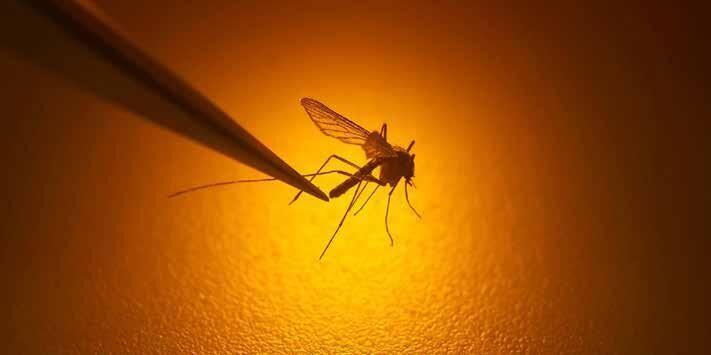South Africa’s Department of Health has issued a stern warning to residents and travelers alike as malaria cases surge in the country. The increase in cases, attributed to the summer season, has raised concerns about this life-threatening tropical disease that’s transmitted through the bite of an infected mosquito.
The Malaria Season in South Africa
The Department of Health cautions that the summer season signifies the start of the malaria period in South Africa. This is due to the combination of higher temperatures and increased rainfall in malaria transmission areas. As these environmental conditions become conducive for the breeding of mosquitoes, the risk of malaria transmission surges.
The latest reports reveal that South Africa has recorded over 7,000 malaria cases since the beginning of 2023. Health spokesperson Foster Mohale highlights the importance of early detection, particularly in high-malaria risk provinces, including KwaZulu-Natal, Mpumalanga, and Limpopo. The department is intensifying its efforts through malaria screening and testing near the borders to identify imported cases promptly.
A Call to Action for Travelers and Residents
Travelers planning to visit or return from malaria-prone areas are urged to take appropriate precautionary measures to prevent possible infections as South Africa enters the malaria season. It’s crucial to stay informed about the risk and take preventive actions.
Mr. Mohale provides some key statistics, noting that out of the 7,400 malaria cases, only 17% are locally acquired, while the rest are from individuals infected outside of South Africa. Moreover, a concerning 66 deaths have been recorded since January 2023 due to malaria.
Identifying and Addressing Symptoms
Individuals experiencing symptoms such as fever, chills, headache, vomiting, and muscle pain are strongly advised to seek medical testing. Early detection and treatment are vital to preventing complications. Special attention should be given to pregnant women and children under five years, who are advised to avoid visiting malaria-endemic areas unless they take extra precautionary measures.
Available Treatments
Thankfully, there are effective treatments for malaria. If you suspect you have malaria, it is imperative to visit a healthcare provider immediately for diagnosis and treatment. Treatment usually involves antimalarial medication, rest, and increased fluid intake.
The Department of Health’s warning serves as a timely reminder of the importance of malaria prevention and early intervention. As South Africa faces an upsurge in malaria cases, public awareness and action are key to combating this potentially deadly disease. Travelers and residents alike should heed this warning, take the necessary precautions, and seek prompt medical attention when needed.














